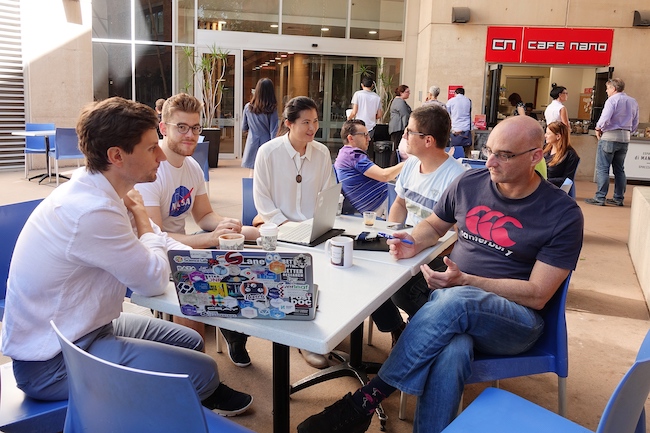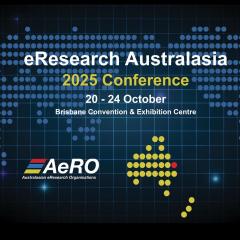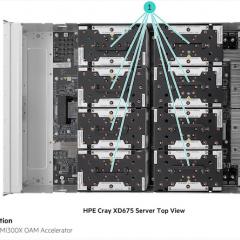
A BIDAC meeting at Cafe Nano. (Photo: Dr Nick Hamilton, RCC.)
UQ’s Hacky Hour has inspired researchers at the university to organise a similar meetup for Brisbane’s imaging community.
The Brisbane Imaging and Data Analysis Clinic (BIDAC) occurs most fortnights on Fridays at the same location as UQ’s Hacky Hour, i.e. Café Nano on the St Lucia Campus (near AIBN), from 10.30am to 1pm.
The meetup’s aim is to bring people together who acquire and analyse imaging data to exchange knowledge. All Queensland imaging research staff and students are welcome to attend.
“You can either bring a problem, bring cookies, or help others,” said BIDAC co-ordinator Thomas Shaw, a PhD student in UQ’s Centre for Advanced Imaging. “If you have a problem in imaging or data analysis, bring it along! Don’t forget your laptop.”
The next BIDAC meeting will be held on Friday, 17 May 2019.
BIDAC was established last year by Steffen Bollmann at CAI to help others who shared common problems in imaging and analysis, despite differences in imaging modalities, with a particular focus on MRI.
BIDAC runs fortnightly when there are problems to solve. For any queries about BIDAC, and to put forward a problem to solve, please contact Tom Shaw: t.shaw@uq.edu.au.
A few examples of topics covered in BIDAC over the last year include:
- using the UQRDM system and the underlying MeDiCI platform for efficiently storing research data
- computing on RCC’s HPC systems Wiener, Awoonga, Tinaroo and FlashLite, and NCI’s HPC
- deep learning and image segmentation
- understanding data infrastructure at UQ and CAI
- analysis pipelines for neuroimaging (Bash and Python in general, and in particular, Nipype)
- organisation of DICOM data into the brain imaging data structure (BIDS) using heudiconv
- design/modelling of fMRI data and adaption of tasks for combined EEG/fMRI acquisitions as well as the effect of sub-second TR on fMRI data
- scaleable and reproducible analyses using Docker/Singularity containers
- deep learning for imaging (Tensorflow, Keras, DLTK, NiftyNet)
- versioning of code (git) and data (datalad)
- sequence choices and trade-offs for imaging studies at 3T and 7T
- sequence development for Siemens IDEA and post-processing in ICE
- image segmentation and registration, and problems and solutions
- sequence choices for myelin imaging
- MATLAB help for a TDCS electrode simulation problem.
Former RCC eResearch Analyst Belinda Weaver co-founded UQ’s Hacky Hour in 2015. It continues to be held most weeks on Tuesdays, 3pm–4pm, at Café Nano. RCC eResearch Analyst Dr Nick Hamilton has run the Hacky Hour for the last two years with the help of volunteer expert helpers from RCC, QCIF and schools and institutes across UQ.
At Hacky Hour, IT experts help research staff and HDR students with their research-related technical issues, such as HPC, data storage and coding.
Dr Nick also runs a weekly Image Clinic on most Monday mornings, and a monthly Brisbane Microscope Facility Forum. See RCC’s ‘Meetups’ webpage for more information.



